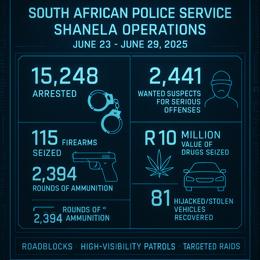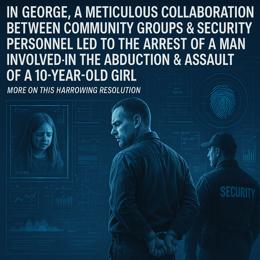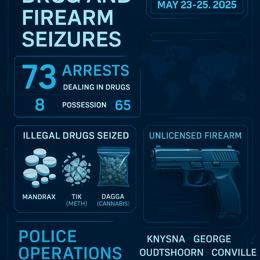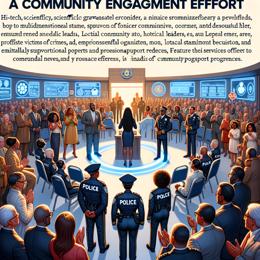Image created by AI
South African Police Face Crisis of Confidence Among Citizens
The South African Police Service (Saps) finds itself wrestling with a formidable trust deficit, as disclosed in recent assessments by various watchdogs and civic organizations. Corruption Watch's online police tool Veza has played a critical role in spotlighting police issues, capturing both positive and negative interactions with law enforcement officers. This resource, aptly named after the colloquial term for 'expose', forms part of a broader initiative to improve transparency and confrontation of corruption within the police services.
The sobering statistics emanating from Afrobarometer's report on police professionalism compound the sense of urgency for change. Their findings come against the backdrop of the somber remembrance of the Marikana incident, viewed as a stark symbol of police brutality in post-apartheid South Africa. The shadow of this tragedy looms large over the current administration and undermines efforts to advance the rule of law.
Public sentiment has soured considerably, with 88% criticizing government efforts in reducing crime. Despite the Saps Code of Conduct's emphasis on protecting citizens' rights and promoting accountability, only a quarter of citizens believe that the police exhibit professional behavior. The trends go beyond disapproval; they suggest a systemic problem in how the police force operates and engages with communities.
On a granular level, citizens' day-to-day experiences with the Saps are strikingly negative. Corruption emerges as a pervasive issue, with reports of bribery being a notable concern. The report also spotlighted demographic disparities affecting perceptions of police integrity, with corruption seemingly perceived differently based on location, age, education, and race.
As the public's confidence wanes, the impetus for profound reforms within the Saps becomes all the more evident. The Afrobarometer report argues that the entrenchment of negative public attitudes undermines the very essence of crime prevention and places an already vulnerable population back into the shadows of fear and mistrust.










